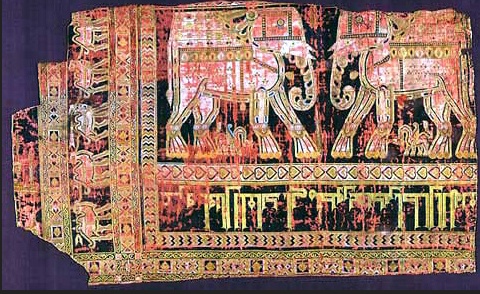ART HIST 201A EXAM 2
4.8(4)
4.8(4)
Card Sorting
1/62
Earn XP
Description and Tags
Study Analytics
Name | Mastery | Learn | Test | Matching | Spaced | Call with Kai |
|---|
No study sessions yet.
63 Terms
1
New cards
greek, classical period; located in Athens
Parthenon
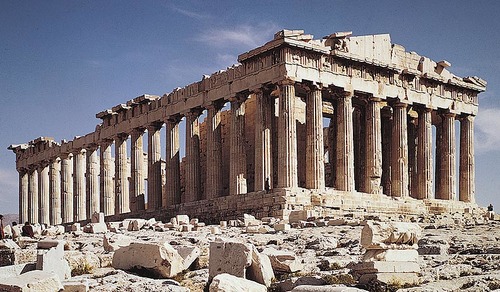
2
New cards
covered with combat scenes such as a fight between the centaur and lapith; was an allegory for myths as well as a commentary of recent events--persian war
Parthenon
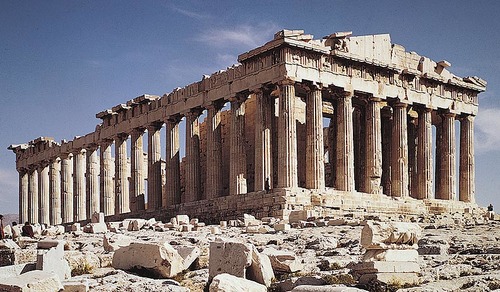
3
New cards
Greek classical period; is from the Parthenon, metope relief sculture
Lapith and Centaur
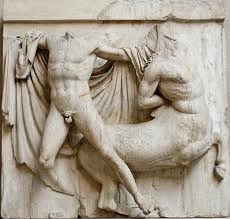
4
New cards
commentary on recent Persian war; was seen as symbolic of the great conflict of the civilized Greeks and "Barbarians";
Lapith and Centaur
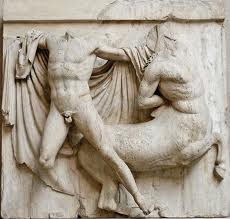
5
New cards
is considered iconic, and had a now lost text alongside it with instructions on how to recreate the human form.
Polykleitos, Spear Bearer (Roman copy)
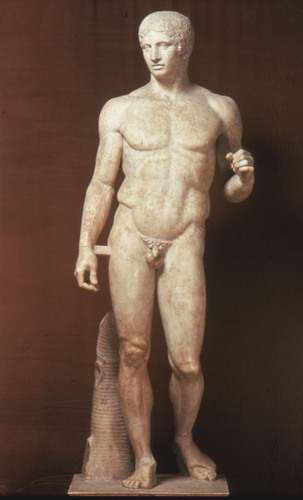
6
New cards
Greek classical period, is a roman copy of the original bronze Greek sculpture; Polykleitos is the artist
Polykleitos, Spear Bearer
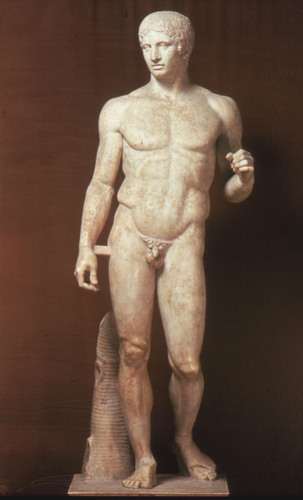
7
New cards
the epitome of woman in classical Greek art; is an image of Aphrodite; Made for the Temple of Aphrodite at Knidos as a devotion monument
Praxiteles, Aphrodite of Knidos (Roman copy)
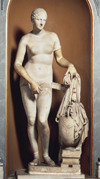
8
New cards
Greek Classical period; roman copy, artist is praxiteles
Praxiteles, Aphrodite of Knidos
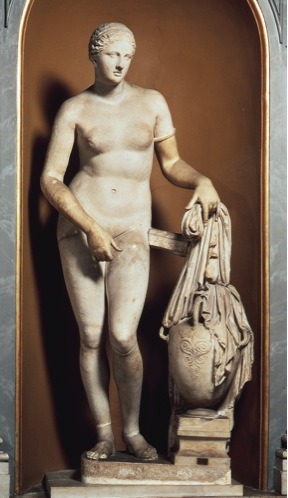
9
New cards
a krater depicting Artemis killing a mortal who gawked at her while she was bathing (girlboss moment?)
Artemis Slaying Actaeon
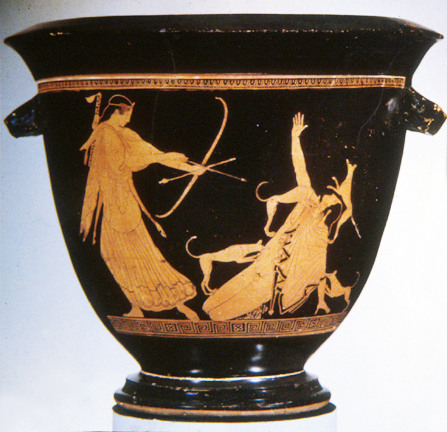
10
New cards
Pan Painter, Greek Classical Period; More naturalistic and has a sense of motion. Not a freeze frame like the Archiec period.
Artemis Slaying Actaeon
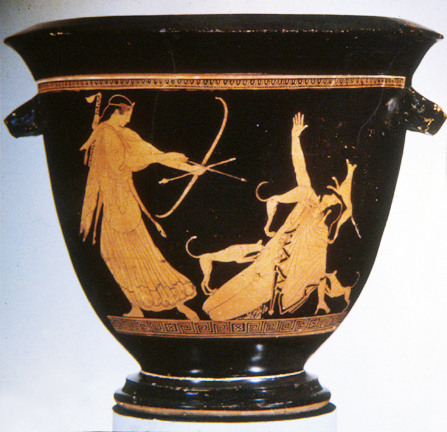
11
New cards
Greek Hellenistic Period; depicts an enemy of greece struggling against serpents alongside his sons. represents mankind
Laocoon
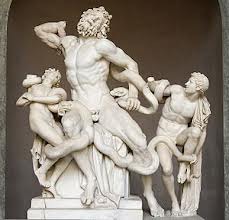
12
New cards
(mythology) the person depicted was trojan a priest or soothsayer who tried to warn against the Trojan horse; the statue depicts the priest being punished for trying to thwart the Greek's plan
Laocoon
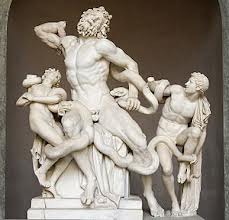
13
New cards
Roman empire; looks like a classical greek piece, however the difference is that the romans created individualized faces (greek faces were more general/a depiction of what is perfect)
Augustus of Primaporta
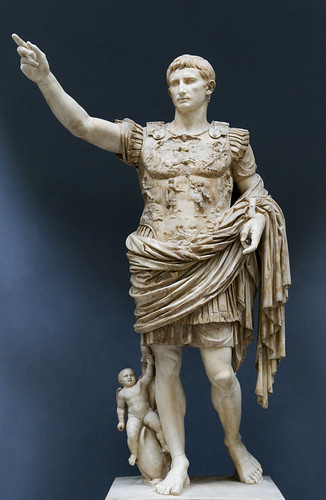
14
New cards
It represents an emperor as he wanted to be seen and remembered (as he conquered Egypt and the roman empire began); He claimed to be related to Venus himself, and carried out the phophecy that one day his family will rule the world. this is shown with the small cupid at his feet (who is related to venus); torso armor is covered with figural imagery.
Augustus of Primaporta
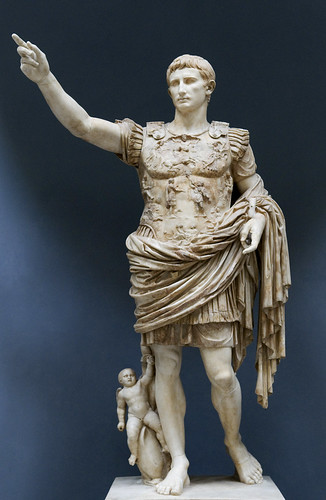
15
New cards
Roman Empire, low relief engraved/carved gem; associated with Augustus; Most likely sent as a gift as a recognition of their accomplishment and showed what will happen when I die (Tyberius will be emperor).
Gemma Augustea
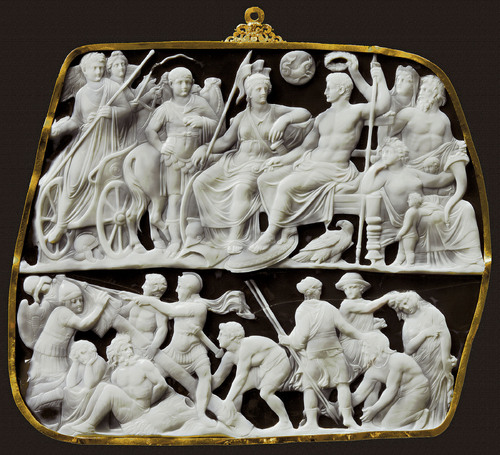
16
New cards
depicts Augustus being crowned a god in the afterlife; Depicts Augustus in the afterworld, sitting next to personification of Rome, Tiberius [top far left] who just conquered some Barbarians [bottom]; They put the defeated armour head gear on a pole as a flag to announce their victory.
Gemma Augustea
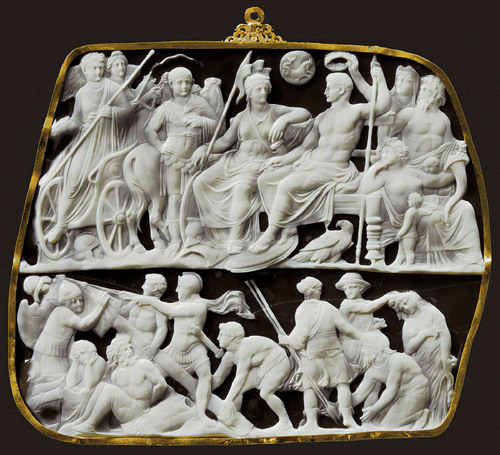
17
New cards
found in the Villa of Mysteries, Pompeii; Roman Empire
Initiation Rites of the Cult of Bacchus
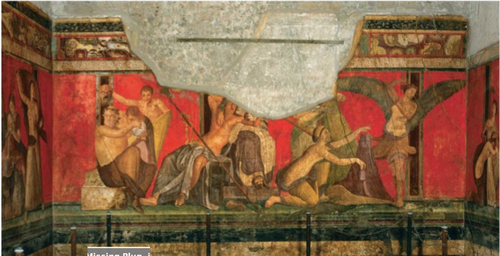
18
New cards
Portrayed the intitiation rites of a mustery religion, most likely the cult of Bacchus; was likely commissioned to commemorate the commissioner joining the cult
Initiation Rites of the Cult of Bacchus
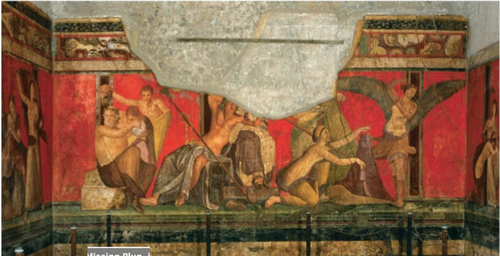
19
New cards
Colosseum, Roman ; became known as such because of statue of Nero next to it called Colossus. Flavian comes from the surname of the e emperor ho commissioned
Flavian Amphitheatre
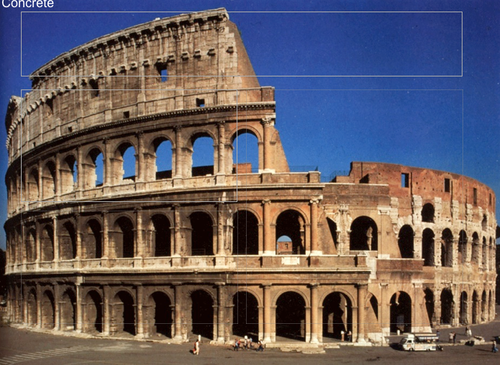
20
New cards
Its purpose was to be an enormous entertainment center. it became the main source of entertainment and became very profitable for them. It was converted into a church, which is why it still stands today.
Flavian Amphitheatre
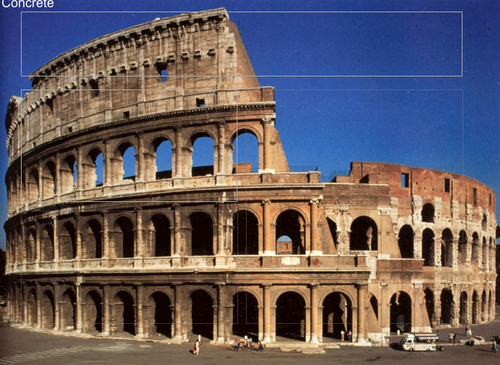
21
New cards
Roman; It commemorated the emperor's successful military campaigns against the Dacians with hundres of relief sculpture.
Column of Trajan
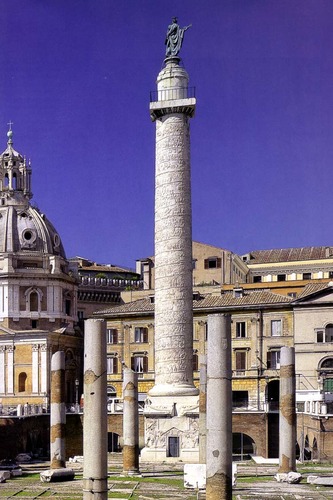
22
New cards
Trajan has been removed, replaced with St. Peter [patron saint of Rome]
Column of Trajan
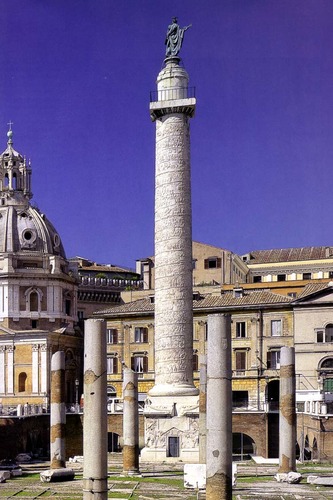
23
New cards
Roman; named after the Pantheon of Gods and Goddesses; used to include a large eagle to represent Jupiter on the front
Pantheon
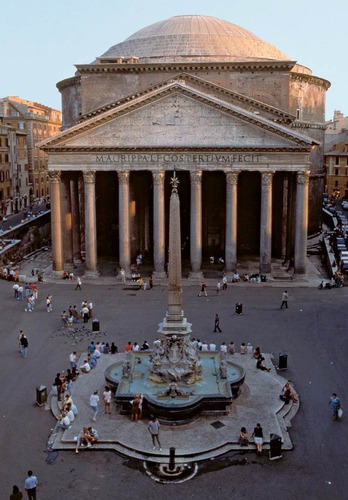
24
New cards
most famous roman temple; It's known for it's dome known as the "oculus" and was dedicated to be a temple for all the gods (pan = all , theos = gods)
Pantheon
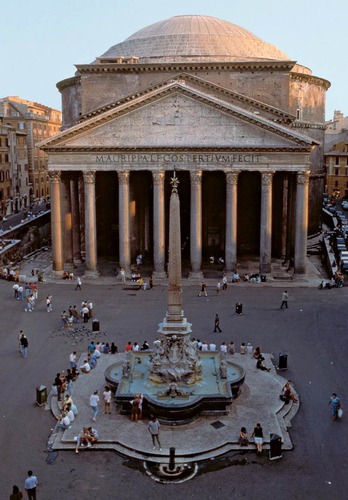
25
New cards
Roman; depicts one of the "good" Roman emperors who had the best interest of their people rather than themselves
Equestrian Statue of Marcus Aurelius
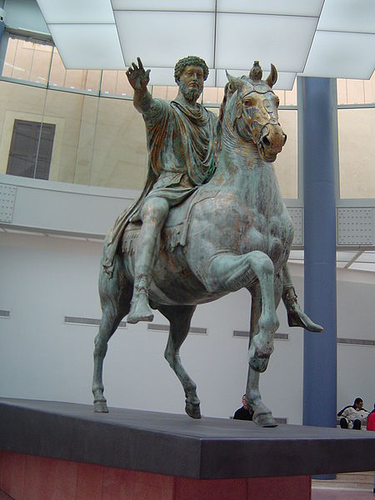
26
New cards
preserved due to belief that it was Constantine [he allowed Christians to practice and build churches]; is very identifiable(?)
Equestrian Statue of Marcus Aurelius
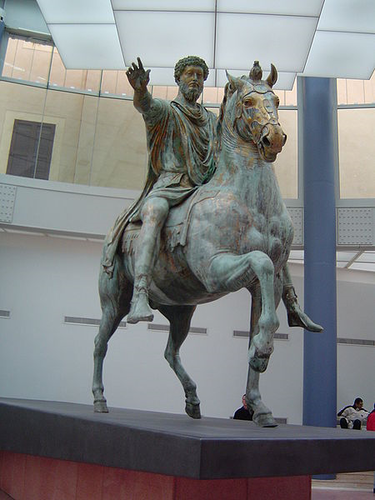
27
New cards
Roman; Hercules cosplay (he wanted to be associated with Hercules)
Bust of Commodus
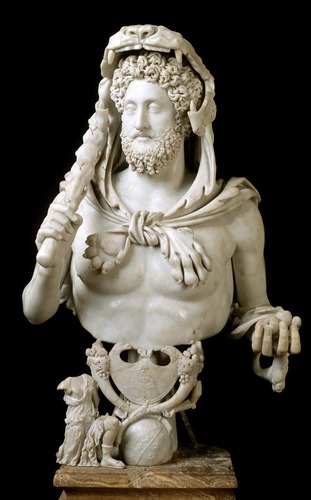
28
New cards
his gf tried to assassinate him??? he got strangled by a wrestler named narcissus in the bath(???)
Bust of Commodus
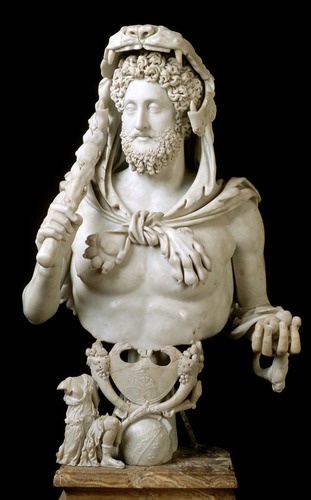
29
New cards
Roman; He was accused of killing his own brother and would be depicted as very cruel
Bust of Caracalla
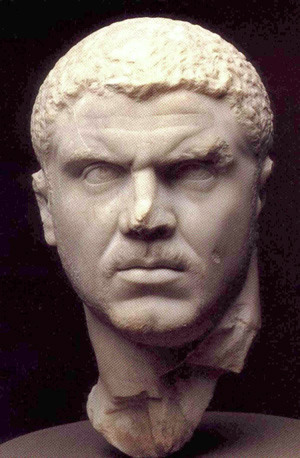
30
New cards
was a very thin skinned person, punished the people of Alexandria for putting on a play that slandered him
Bust of Caracalla
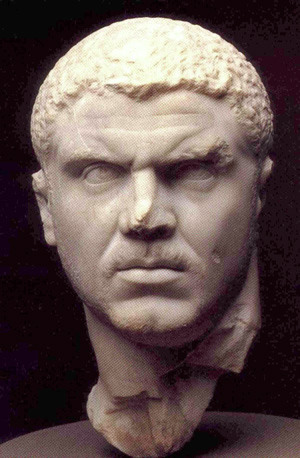
31
New cards
Early Christian Catacomb, located in Rome; was made before Christianity was legal. if a roman were to look at these images, they likely wouldn't think it is Christian; The image was a reminder of jesus's promise " I am the good shepherd. A good shepherd lays down his life for the sheep."
Good Shepard, Orants, and Jonah
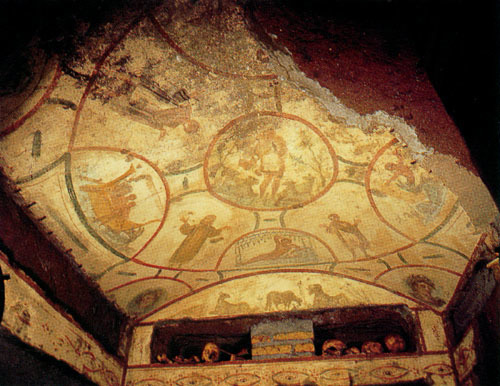
32
New cards
A sequence of images that could be interpreted as roman or pagan individually. however the shape that it is arranged in (the shape of a cross) gives it Christian meaning. old myths with similar symbolism to the bible were used so Christian people understood what it was meant to be.
Good Shepard, Orants, and Jonah
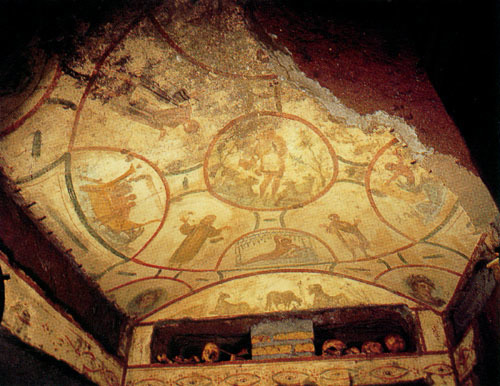
33
New cards
Byzantine, Ravenna. Inside contains mosaics
Oratory of Galla Placidia
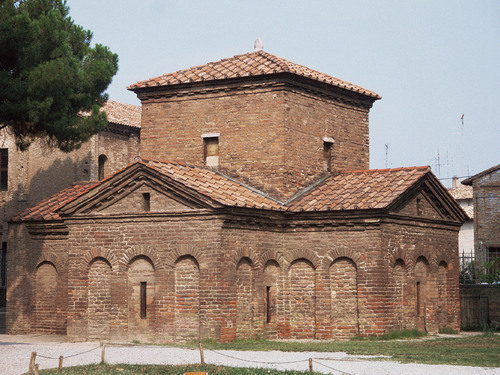
34
New cards
The building was dedicated to St. Lawrence, but today bears the name of Galla Placidia (daughter of roman emperor Theodoresius I)
Oratory of Galla Placidia
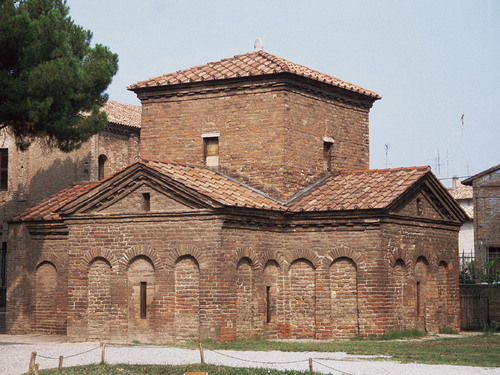
35
New cards
Mausoleum of Galla Placidia, Byzantine, Ravenna; St Lawrence is standing over where we was roasted
Martyrdom of St. Lawrence
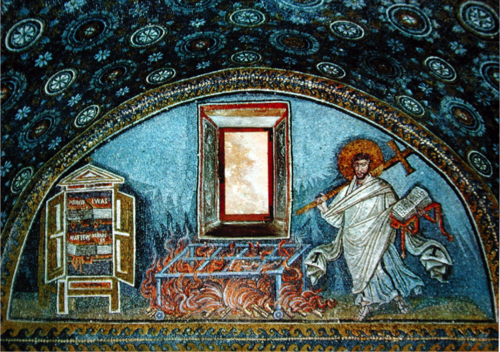
36
New cards
On the left stands a tall cabinet containing the gospels signifying the faith for which he gave his life. (St Lawrence)
Martyrdom of St. Lawrence
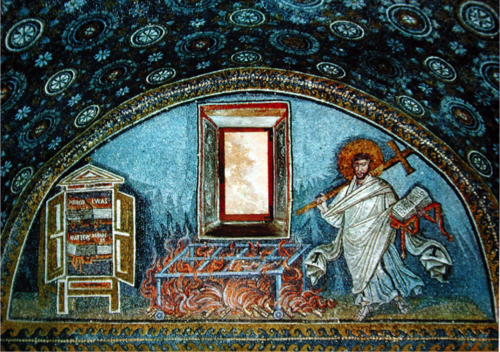
37
New cards
Mausoleum of Galla Placidia, Byzantine, Ravenna; purple garmet over lap associates imperial family with Jesus; meaning God is on their side
Good Shepherd, mosaic
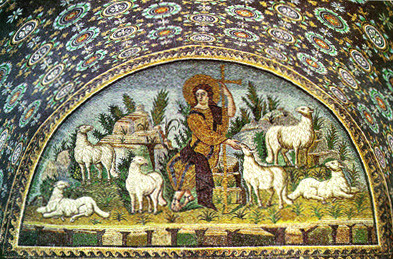
38
New cards
located over entrance of Oratory of Galla Placidia; represents a transition period between naturalistic depiction of the classical period into the representation of the medieval period.
Good Shepherd, mosaic
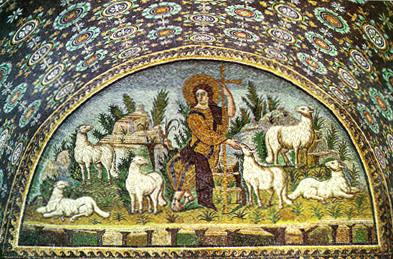
39
New cards
Constantinople (Istanbul), Byzantine; commissioned by Justinian, the 4 towers were added 1,000 year after the structure was finished
Church of Hagia Sophia
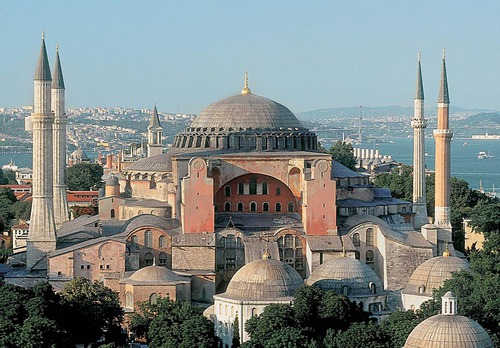
40
New cards
built in 5 years; originally a church; Made to symbolize and emobidy imperial power and Christian glory; was changed into a Mosque later on
Church of Hagia Sophia
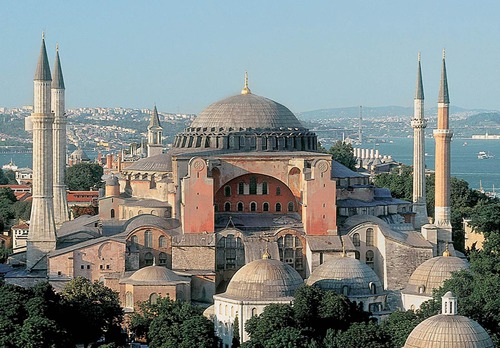
41
New cards
mosaic, Church of San Vitale, Ravenna, Byzantine; -shows Justinian with clergy and military; includes the Chi Rho - a symbol of Christianity
Emperor Justinian and His Attendants
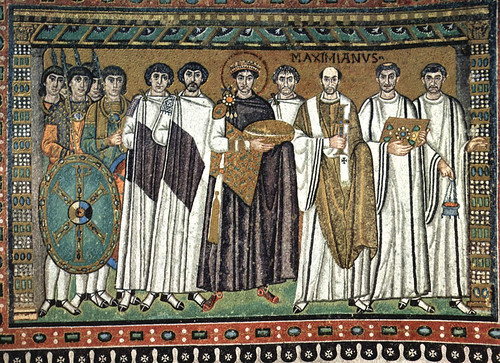
42
New cards
mosaic, Church of San Vitale, Ravenna, Byzantine; Is opposite Justinian's mosaic; Theodora was a circus performer in a previous life; depicts sacrifices being made to the church
Empress Theodora and Her Attendants
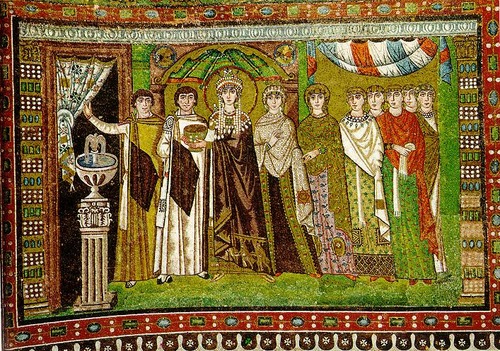
43
New cards
Byzantine, Monastery of St. Catherine, Mt. Sinai, Egypt; Monks did not destroy St. Catherine's monastery, preserving this icon
Icon of the Virgin and Child with Saints Theodore & George and Angels
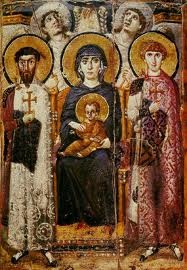
44
New cards
very old piece that is a survivor of the Early Byzantine Empire destruction stuff; The icon was very old and hidden away.
Icon of the Virgin and Child with Saints Theodore & George and Angels
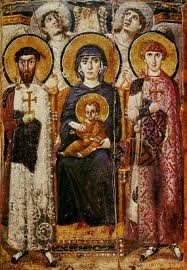
45
New cards
icon, Russia, Byzantine; named after Russian town of Vladimir-miraculous icon; Not interested in naturualism but more focused on the christian message
Virgin of Vladimir
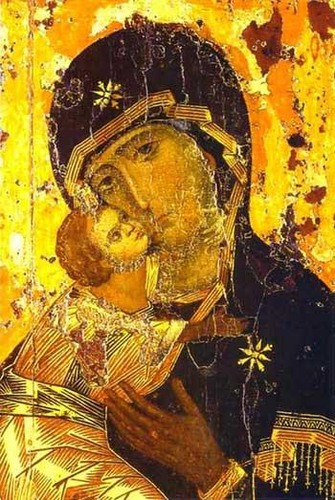
46
New cards
miraculous icon; was believed to have protected from invasions multiple times
Virgin of Vladimir
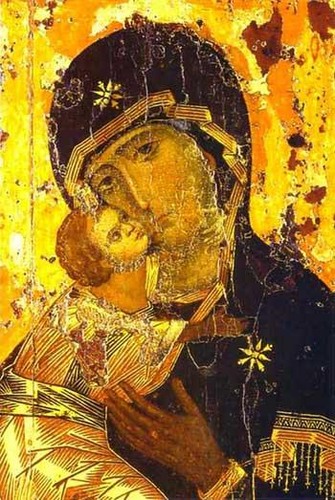
47
New cards
Constantinople, Byzantine; Shows the standard Byzantine representation of Christ's ressurection
Anastasis (Resurrection)
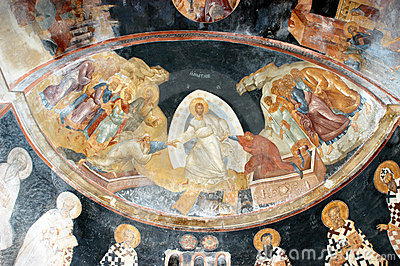
48
New cards
We know it is resurrection because of the nymbus behind him which shows the heavenly clouds.
Anastasis (Resurrection)
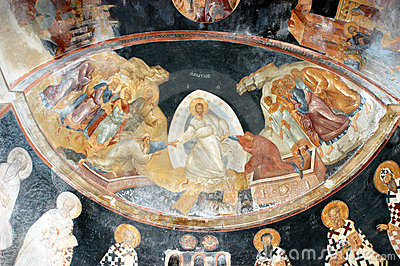
49
New cards
The Kaaba, Mecca
Islamic; most sacred place in what is now Saudi Arabia; The Kaaba is asymbolic center of the islamic world, the place to which all Muslim prayer is directed and the ultimate destination of Islam's obligatory pilgrimage, the hajj.
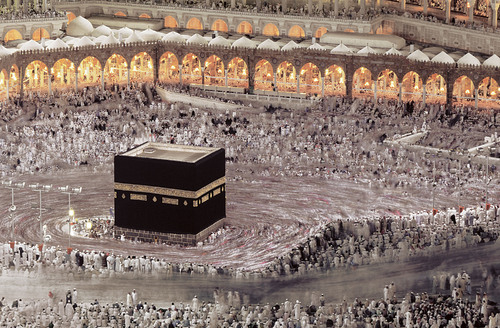
50
New cards
The Kaaba, Mecca
symbol of pilgrimage, represents the triumph of Islam when it used to be Polytheistic
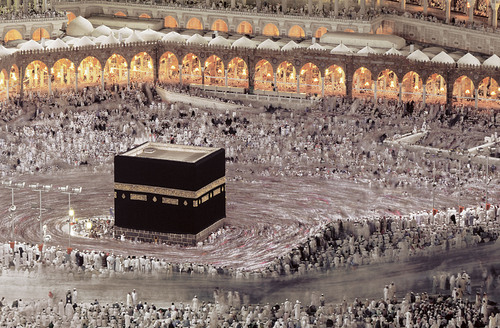
51
New cards
Dome of the Rock
Jerusalem, Islamic covers a rock significant to 3 different monotheistic faiths
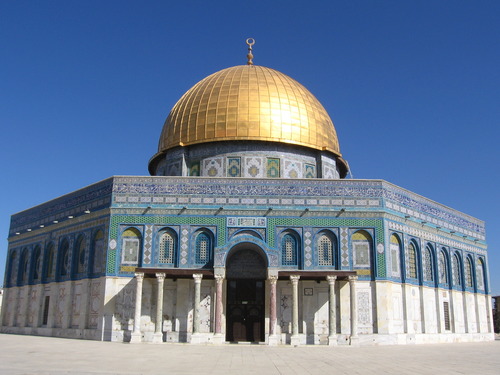
52
New cards
Dome of the Rock
emphasis on the dome with gilding; use of color-- it is highly decorated; typical inclusion of text from the Quran
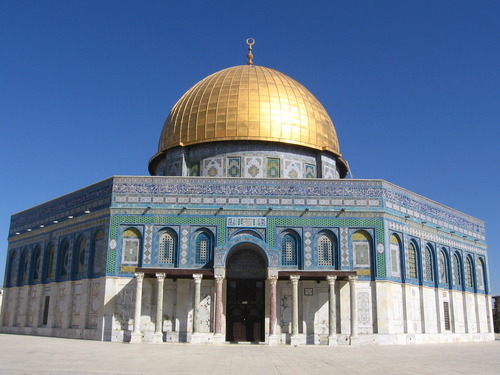
53
New cards
Great Mosque of Kairouan
Tunisia, Islamic; aligned to face mecca
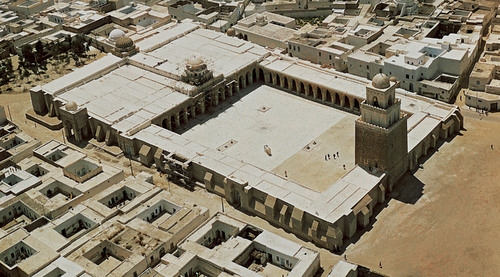
54
New cards
Great Mosque of Kairouan
It shows that the Kairouan would become a cosmopolitan metropolis under storng Muslim control.
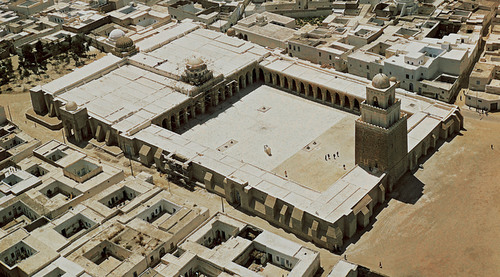
55
New cards
Jug with Sphinxes and Harpies
Iran, Islamic; was likely a marriage gift
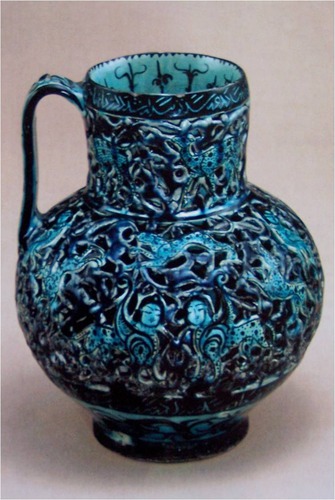
56
New cards
Jug with Sphinxes and Harpies
the sphinxes and harpies look at each other with affectionate gazes, there is a love poem at the base
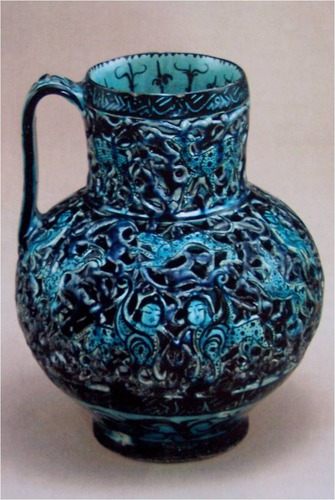
57
New cards
Sinan, Mosque of Sultan Selim
made by Sinan; Turkey, Islamic; Commissioned by Sultan Selim II
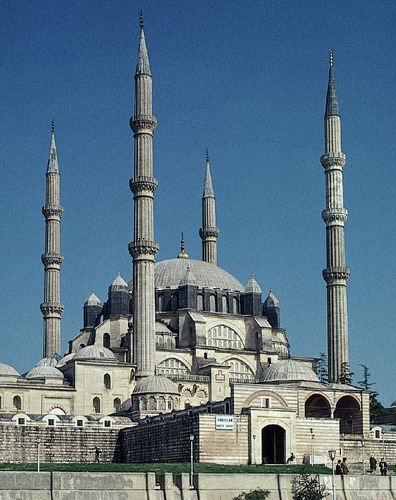
58
New cards
Sinan, Mosque of Sultan Selim
homage to the Hagia Sophia
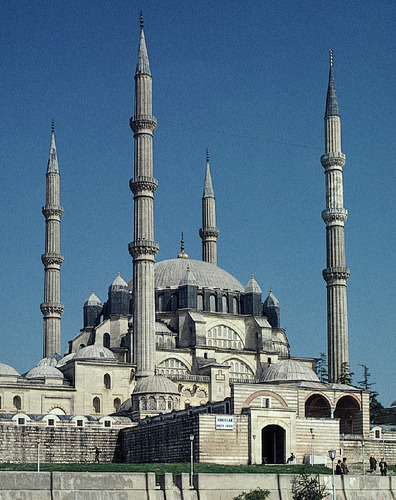
59
New cards
Illuminated Tugra of Sultan Suleiman
Turkey, Islamic, a piece of calligraphy
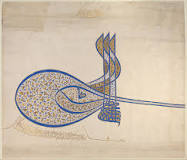
60
New cards
lluminated Tugra of Sultan Suleiman
was used to authenticate things; was essentially the Sultan's signature
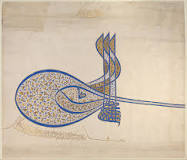
61
New cards
Iran, Islamic; very vivid ceramic tile work, naturalistic plant shapes with text
Great Mosque of Isfahan
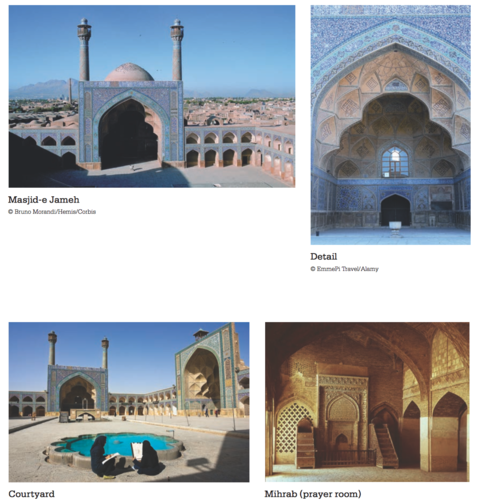
62
New cards
silk textile; Islamic
the Shroud of St. Josse
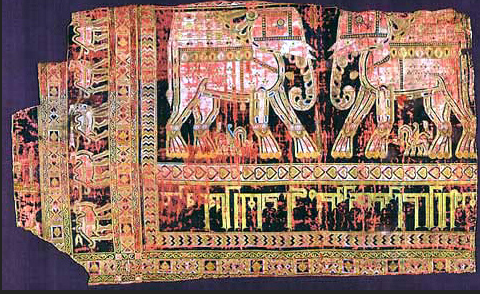
63
New cards
repurposed military banner that was gifted to a church; used to shroud the bones of St. Josse
the Shroud of St. Josse
